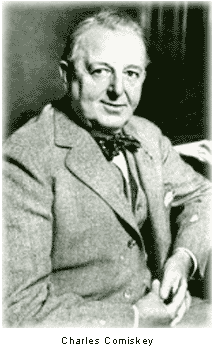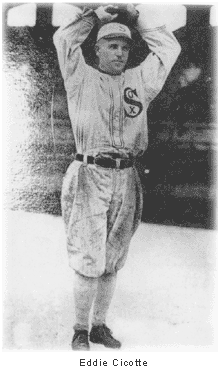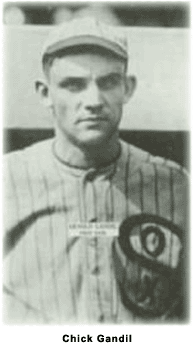The year was 1919. The Great War had ended the previous Fall. The American public clamored to return to normalicy. And what better way to begin the catharsis than immersing themselves in the American Pastime — baseball. What they got was a large dose of disillusionment — their game, their ethos, had been torn asunder by the very gods they worshipped — Big League baseball players.
The players were not the only ones on the harshly lit stage. The greedy gambling establishment with its lure of cold, hard cash, and a notoriously penurious baseball owner — all set in uninhibited early-20th-century America — were every bit to blame.
The Backdrop
Although the war effort had depleted the ranks of Major League baseball and left its rosters bereft of stars, the game was alive and well — at least on the surface. Beneath the surface, however, lurked a sinister monster with myriad heads — the gambling profession. Gambling on games by professionals, barkeeps, and laymen was a common happenstance. In fact, gambling on games had been present since 1858, shortly after baseball became organized.
Even players were in on the act — at least during the regular season to some sporadic degree, because it was a quick, painless way to augment their meagre salaries. But 1919 was different. The Chicago White Sox had won the World Series two years earlier, but several key players left to help in the war, and the club finished in sixth place in 1918.
 The end of the war saw a reconstitution of one of the best teams in baseball. Owner Charles Comiskey, who could make the buffalo on a nickel bellow he was so tight with his money, kept one of the lowest payrolls in the game. At a time when average players from other clubs were making $10,000 a year, White Sox stars Shoeless Joe Jackson and pitcher Eddie Cicotte were payed $6,000 or less (future Hall of Fame second baseman Eddie Collins was payed $15,000). Cicotte was denied a $10,000 bonus for winning 30 games when Comiskey had him benched after he won his 29th game of the year, ostensibly so Cicotte could "rest his arm" for the Series. That made Cicotte furious.
The end of the war saw a reconstitution of one of the best teams in baseball. Owner Charles Comiskey, who could make the buffalo on a nickel bellow he was so tight with his money, kept one of the lowest payrolls in the game. At a time when average players from other clubs were making $10,000 a year, White Sox stars Shoeless Joe Jackson and pitcher Eddie Cicotte were payed $6,000 or less (future Hall of Fame second baseman Eddie Collins was payed $15,000). Cicotte was denied a $10,000 bonus for winning 30 games when Comiskey had him benched after he won his 29th game of the year, ostensibly so Cicotte could "rest his arm" for the Series. That made Cicotte furious.
Comiskey also charged the players 25 cents to have players' uniforms cleaned. Most of the team chose not to have theirs washed, so the uniforms took on a dingy tint. Other teams taunted and chided them, calling out "Black Sox" whenever it was deemed appropriate. The rumor that the Black Sox were so named because of the malelovent spectre hovering over the scandal is not true.
Simply Scandalous
In a move to spite Comiskey and his penny-pinching habits, first baseman "Chick" Gandil hatched a plot with Joseph Sullivan, an associate with gambling ties, to throw the World Series to the Cincinnati Reds, winners of the National League pennant. Gandil wanted $100,000 from Sullivan, but Sullivan didn't have that much cash. Sullivan had to enlist other gamblers who might want a piece of the action.
Enter Abe Attell and "Sleepy Bill" Burns. They knew of one person with that much money who would be willing to front it for a "guaranteed" win: Arnold Rothstein of New York City.
Meanwhile, Gandil began to round up key players who would like a little extra cash in their pockets. First was Cicotte, then "Lefty" Williams, a 23-game winning pitcher. Shortstop "Swede" Risberg bought in, along with utilityman Fred McMullen, who had eavesdropped on the Gandil/Risberg conversation. Centerfielder "Happy" Felsch also agreed to the terms.
Jackson was offered $10,000, but he turned it down. Gandil returned with a $20,000 offer, which was rebuffed again. That may have posed a problem for Gandil because he was forced to lie to the gamblers, saying Jackson was in. Third baseman "Buck" Weaver, Jackson's best friend, attended some meetings of the involved players who were working out the details on exactly how to throw the games without arousing suspicion. Weaver also turned down a chance to join in.
 The Fix Is On
The Fix Is On
The early odds for the World Series heavily favored the White Sox at 5 to 1. But as big money started to come in on the Reds, the odds came down. Rumors of a fix began to circulate.
Cicotte plunked the first batter into the Reds' lineup, signaling that the fix was on. The Sox lost the first game of the Series 9-1, but after the game, the players were not paid as agreed. The players were angry, but acquiesced to the plea to throw one more game to see if the gamblers would hold up their end of the bargain.
Game 2 went to the Reds, as well, 4-2. This time, Gandil came back with money, but only $10,000 instead of the $40,000 that was promised. The players then decided the fix was off and played hard to win the third game, which they did 3-0, behind rookie pitcher Dickie Kerr.
Some gamblers were betting on individual games and lost a good deal of money on that third game. Sullivan came up with another $20,000 to placate the players. It seemed to have worked, when the Sox lost Game 4, 2-0. In Game 5, with Williams on the mound, the Reds won again by a score of 5-0.
On the brink of elimination¹ at four games to one and no money coming in, it was decided to go for the Series win. At least the players would earn a $5,000 paycheck for winning the Series. Chicago proceeded to win Game 6, 5-4 in 10 innings, and Game 7, 4-1 behind Cicotte's seven-hitter.
The Sox were back in it, trailing only four games to three, with Williams taking the mound. Unbeknownst to the rest of the team, Williams had been approached by some thugs hired by Rothstein. He and his family were threatened with bodily harm if he did not make sure the Sox lost Game 8.
Williams was visibly shaken by the threats. He gave up four earned runs on four hits while recording only one out, before being relieved in that first inning. The Reds closed out the Series with a 10-5 victory.
1920
Rumors and innuendo flew after the 1919 World Series, in which the Cincinnati Reds had defeated arguably the best team in baseball: the Chicago White Sox.
As the 1920 season unfolded, an increasing number of players were caving to the gamblers. Stories circulated about games thrown by members of the Boston Braves, Cleveland Indians, New York Yankees, and New York Giants.
In September of that year, it was charged that the Chicago Cubs had thrown games to the Philadelphia Phillies. The investigation that followed soon spread to the 1919 Series and baseball gambling in general.
 It was determined that the three-man National Commission², which oversaw the league's inner workings, would disband in favor of a single commissioner with power to fine and suspend players for gambling and any other activity that he thought might be a detriment to the game.
It was determined that the three-man National Commission², which oversaw the league's inner workings, would disband in favor of a single commissioner with power to fine and suspend players for gambling and any other activity that he thought might be a detriment to the game.
That man was Judge Kenesaw Mountain Landis. The commissioner's first order of business was to ban for life the eight players implicated in the Black Sox scandal, even though they had been exonerated of criminal charges by a grand jury.
The scandal and suspensions rocked the baseball world, but the decisions Landis made helped to clean up a sport that was near self-destruction. Fans regained confidence in baseball and returned to their state of nirvana.